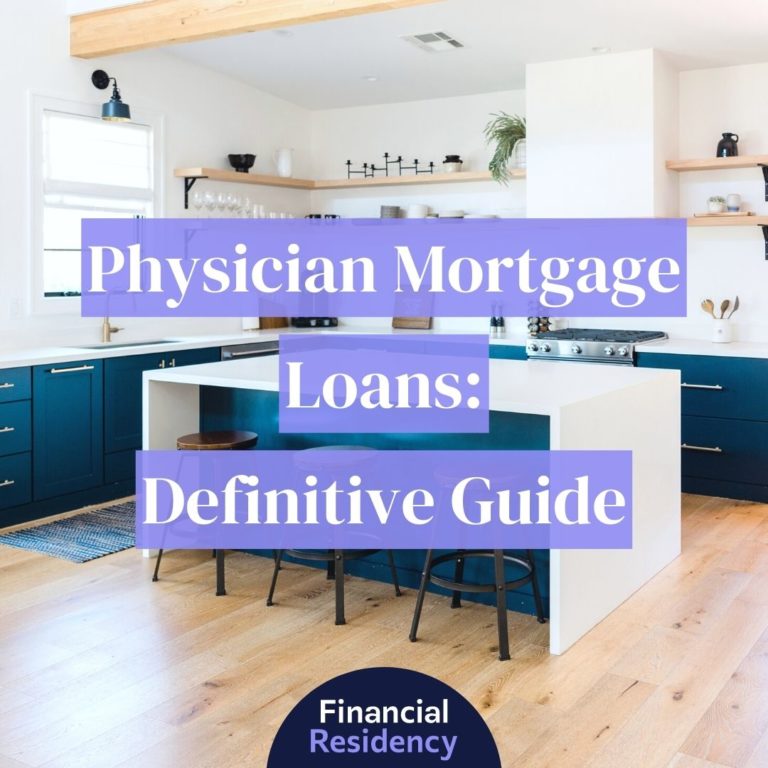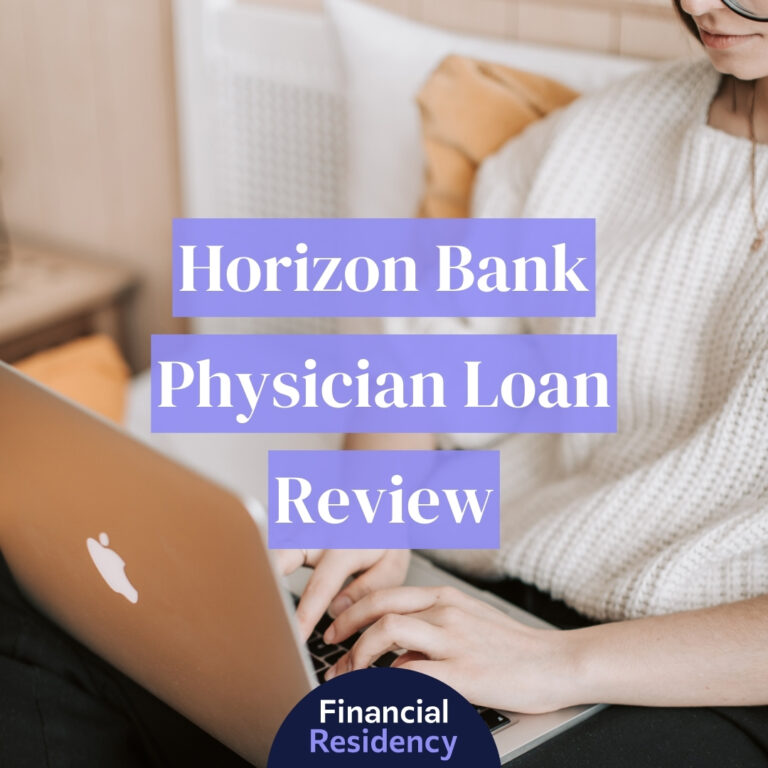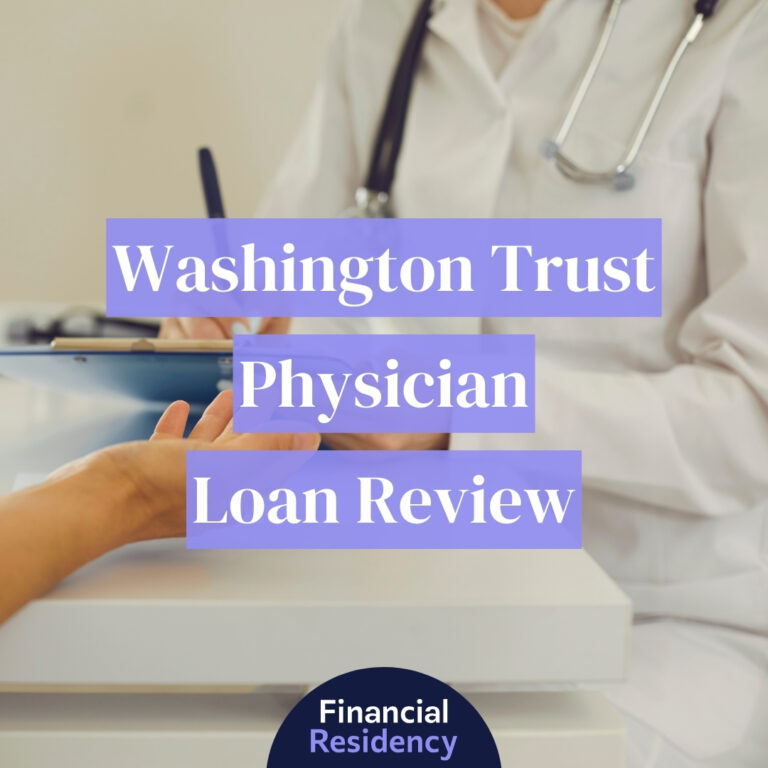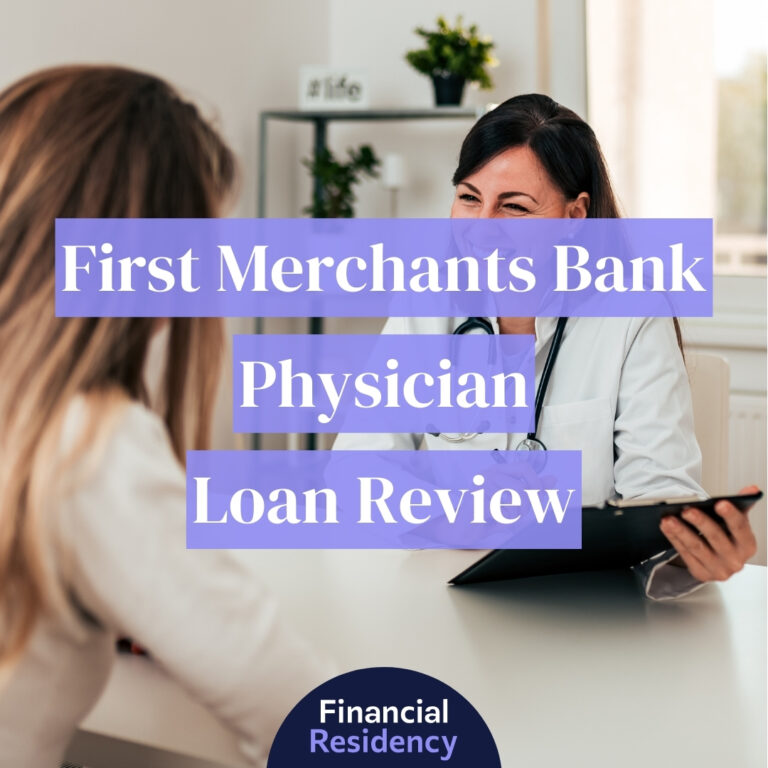In 2022, the median annual income for a pharmacist was $132,750, and the average student loan debt for a pharmacist was $170,444.
Early career pharmacists don’t always start with high six-figure salaries either, and it can often feel like you’re still playing catch up from years of charging living expenses to credit cards throughout medical school.
At the same time, the temptation to settle down can be strong once school chaos has ended and your future employment path looks clearer. If you have a family, you might want to give them the stability of a childhood home in an area you love.
However, homeownership can feel like a pipe dream if you don’t have the typical cash reserves to cover a substantial down payment and closing costs associated with conventional mortgages.
Pharmacist mortgage loans are designed to understand the financial needs of healthcare professionals so you can purchase a home without needless delay.
What is a Pharmacist Mortgage Loan?
Pharmacist mortgage loans are another term for physician mortgages, including pharmacy professionals.
Physician mortgages are specialized loan programs––sometimes not even advertised––designed by banks to attract the business of high-earning medical professionals.
- Low to No Down Payment: Pharmacist mortgage loans allow early-career doctors who haven’t yet built up sufficient employment history or put away enough money to cover a substantial down payment and closing costs. In many cases, pharmacists can secure as much as $750,000 without a down payment, but it’s typical to see down payments between 5 and 10% for larger loan amounts.
- No PMI: Even with a low down payment, pharmacist mortgage loans waive the typical private mortgage insurance (PMI) requirement, which can reduce your mortgage payments.
- Exclude Student Loans from DTI: Medical professionals will often graduate with significant student loan debt, which can skew their debt-to-income (DTI) ratios outside the acceptable range for conventional mortgages. However, pharmacist mortgage loans often exclude student loan debt or use your income-driven repayment amount when calculating your DTI. In some cases, physician loan underwriters will even accept DTI ratios as high as 50% for otherwise qualified candidates.
- Higher Credit Score Needed: While physician loan programs are more lenient in some ways, in other ways, they can feel more restrictive than a conventional loan. Physician loans generally require a credit score of at least 700, which is higher than many other mortgage products.
- Must be for a Primary Residence: Physician loans must also be used to purchase an owner-occupied primary residence, so investment, second homes, and rental properties aren’t eligible for financing.
How to Get a Pharmacist Loan
Most lenders make it easy to get a pharmacist mortgage loan. Here are some simple steps to follow to get started:
- Get pre-qualified: Before looking at homes or making any decisions, get pre-qualified. To do this, you must talk to a loan officer at your chosen bank and discuss your qualifying factors. You’ll disclose things like your income, assets, and estimated credit score to see what you can afford.
- Gather your paperwork: After learning what you might qualify for, gather your most recent pay stubs, bank statements, and any information about your debts, including student loans.
- Get pre-approved: When you’re ready to look at homes, complete a loan application and provide your gathered paperwork to prove you can afford/qualify for it. The pre-approval letter the lender provides will help you when making offers on homes.
- Satisfy conditions: While you look for a home, satisfy any conditions the lender requires. You’ll see what you must clear on the pre-approval letter. The faster you clear the conditions, the faster you can close on your loan after finding a home and signing a sales contract.
Discover The Best Lenders Answer just a few questions about your career, where you're buying, and how much you want to borrow. Our service will then show you the exact programs you're eligible for from vetted physician loan specialists who will guide you through every step of the process – obligation-free!
Top 5 Pharmacist Mortgage Lenders
Here are the top pharmacist mortgage loans:
1. Flagstar Bank
- BBB Grade: A+
- D. Power Score: 781
- State availability: Nationwide
Flagstar Bank includes pharmacists, among many other high-earning professionals in its Professional Loan Program.
Borrowers with a credit score of 720 or higher can qualify for a home loan of up to $1 million with zero money down. Other borrowers can access up to $1.5 million with a low down payment of 5%.
You can use gift funds or interested-party contributions to supplement your savings.
The following professionals are included in the program:
- ATP Pilot
- Attorney
- Certified Public Accountant (CPA)
- Clinical Nurse Specialist
- Doctor of Dental Medicine (DMD)
- Doctor of Dental Surgery (DDS)
- Doctor of Ophthalmology (MD)
- Doctor of Optometry (OD)
- Doctor of Osteopathy (DO)
- Doctor of Pharmacy (PharmD)
- Doctor of Podiatric Medicine (DPM)
- Medical Doctor (MD)
- Medical Resident (Educational License)
- Nurse Anesthetist (CRNA)
- Nurse Practitioner (NP)
- Physician Assistant (PA)
- Registered Nurse (RN)
- Veterinarian (DVM)
All of Flagstar Bank’s Professional Loans are adjustable-rate mortgages. The program offers flexible debt-to-income ratio calculations by using your income-driven repayment amount.
Borrowers must be within 10 years of starting their careers to qualify.
Learn More:
2. Evolve Bank & Trust
- BBB Grade: B
- D. Power Score: N/A
- State availability: All 50 states
While many physician loans have property restrictions, Evolve Bank & Trust is a bit more flexible than its competitors. You can purchase a multi-family property, condominium, co-op, or land or build new construction.
You can even close on your home up to 90 days before you start work with a signed employment contract.
Evolve Bank & Trust offers up to $2 million in financing to qualified medical professionals in the following areas:
- Clinical Nurse Specialists
- CRNA
- DC
- DDS
- DMD
- DO
- DPM
- DVM
- MD
- NP
- OD
- PA
- PharmD
All physician loans are free of PMI, no matter your down payment amount. You may finance 100% of the purchase price up to $1 million. Loans up to $1.25 million require a minimum 5% down payment.
Loans up to $1.5 million require a 10% down payment, and loans up to $2 million require a 15% down payment.
Learn More:
3. The Federal Savings Bank
- BBB Grade: A+
- D. Power Score: N/A
- State availability: All 50 states
The Federal Savings Bank provides up to $2 million in financing for medical professionals to purchase a primary residence. If you don’t have sufficient cash reserves, gift funds from immediate family members can help you increase your approval odds.
It offers specialized home loans for medical professionals in the following practice areas:
- Dentists (DDS or DMD)
- Physicians (MD)
- Doctor of Osteopathy (DO)
- Doctor of Pharmacy (PharmD)
- Doctor of Podiatric Medicine (DPM)
- Doctor of Veterinary Medicine (DVM)
- Nurse Anesthetist (CRNA)
- Nurse Midwife (APRN)
- Nurse Practitioner (NP)
- Optometrist (OD)
- Physician Assistant (PA)
- Psychologist
Deferred student loans aren’t factored into the application process, and as much as 6% of your closing costs could be paid by the seller.
Signed employment contracts are considered acceptable proof of earning potential, and you can close on your home up to 90 days before you start work––giving you plenty of time to settle and move.
Learn More:
4. Frandsen Bank & Trust
- BBB Grade: A+
- D. Power Score: N/A
- State availability: MN, WI, ND
Frandsen Bank & Trust has a branch of its business dedicated to meeting the needs of medical professionals in Minnesota, Wisconsin, and North Dakota. One of these financial services is its physician loan program.
The following medical professionals are included in the program:
- CRNA
- DDS
- DMD
- DO
- DPM
- DVM
- MD
- NP
- OD
- PA
- PharmD
- RPh
All student loan debt is excluded from the credit approval process. In general, a 5% down payment is required to secure a loan through the physician loan program, but some exceptions may be made for those who need 100% financing.
PMI isn’t required either with either down payment option. While many other mortgage lenders require your employment contract to be dated within 90 days of closing, Frandsen Bank & Trust is more flexible with the timeline.
Loans may be used to purchase a new home or refinance an existing primary residence.
Learn More:
5. Fulton Bank
- BBB Grade: A+
- J.D. Power Score: N/A
- State availability: DE, MD, NJ, PA, VA
Fulton Bank opens its Physicians Mortgage Program to home buyers working as physicians, dentists, pharmacists, and veterinarians.
The program is designed to help with the purchase of a primary residence, but refinancing options are available to borrowers with lower loan-to-values.
Fulton Bank’s zero down payment option is slightly more generous than comparable physician loan programs. Borrowers can qualify for up to $1.5 million without a down payment. Loans up to $2 million require a 5% down payment, and loans up to $3 million require a 10% down payment.
All down payment options waive PMI. Borrowers can choose between 15 and 30-year fixed interest rate options or 5, 7, 10, and 15-year ARMs.
The seller may even pay up to 6% of your closing costs. For borrowers with insufficient savings to cover a down payment, closing costs, or cash reserves, gift funds from immediate family members are allowed.
Student loans deferred for twelve or more months aren’t included in the credit approval process.
Learn More:
Pros and Cons of Pharmacist Mortgage Loans
Considering the pros and cons of pharmacist mortgage loans can help you make an informed choice for your unique financial situation.
Pros
- Minimal down payment: Physician home loans have low down payment requirements. You can often put down as little as 0–5%.
- Flexible underwriting guidelines: Doctor loans will have flexible debt-to-income calculations that sometimes exclude student loan debt. Once they realize you’re a medical professional, underwriting will often be more lenient with your loan application.
- No private mortgage insurance: Unlike conventional loans, pharmacist mortgage loans don’t require PMI, regardless of your down payment amount.
- May be used to refinance: Physician home loans may be used to rate/term or cash-out refinance an owner-occupied residence.
Cons
- Large mortgage payment: Because pharmacist mortgage loans don’t conform to the loan limits set by Freddie Mac and Fannie Mae, it can be easy to borrow outside your means.
- Limited home equity: Smaller down payments give you limited home equity, which can take years of monthly payments to build.
- Variable interest: A lot of physician mortgage programs are structured with variable interest to make up for smaller down payments and other more relaxed qualifications.
- Higher credit score: Doctor mortgage programs will often require a credit score of around 700, which is slightly higher than the 640 minimum credit score for conventional loan programs.
Other Home Loan Options for Pharmacists
Pharmacists have other options for mortgage loans.
You can review the terms of some popular home loan options in the table below.
We also recommend discussing your options with a loan officer, Realtor, or mortgage broker so you can get personalized advice tailored to your financial needs.
| Loan Type | Quick Info |
| Conventional Loan
(most common mortgage option) |
Minimum Credit Score: 640 Minimum Down Payment: 3% Maximum DTI ratio: 43% Interest: Fixed or variable Open to: Anyone who qualifies Fees: PMI with less than 20% down Property types: Any |
| FHA Loan
(sponsored by Federal Housing Authority, serviced by private lenders) |
Minimum Credit Score: 500* Minimum Down Payment: 3.5% Maximum DTI ratio: 43% Interest: Fixed Open to: Anyone who qualifies Fees: Upfront funding fee of 1.75% Property types: Primary residences that meet FHA minimum standards |
| USDA Loan
(sponsored by U.S. Department of Agriculture, serviced by private lenders) |
Minimum Credit Score: 640 Minimum Down Payment: N/A Maximum DTI ratio: 41% Interest: Fixed Open to: Low to moderate-income families Fees: Annual fee of 0.35% Property types: Single-family homes used as your primary residence |
| VA Loan
(sponsored by Department of Veteran Affairs, serviced by private lenders) |
Minimum Credit Score: N/A Minimum Down Payment: N/A Maximum DTI ratio: 41% Interest: Fixed or variable Open to: Active duty military and veterans Fees: Upfront funding fee of 2.15% Property types: Any |
| 80/10/10 Mortgage
(Finance 80% of purchase cost, take out 20% home equity loan, put a 20% down payment) |
Minimum Credit Score: 640 Minimum Down Payment: 10% Maximum DTI ratio: 43% Interest: Fixed or variable Open to: Anyone who qualifies Fees: N/A Property types: Any |
*It’s best to have a credit score of at least 620, but FHA lenders will work with borrowers who have lower credit. However, it will often require a 10% down payment.
Methodology
When choosing the best pharmacist mortgage loans, we considered the following factors:
- Low fees: Borrowing a mortgage can get costly. We looked for lenders with reasonable fees and market interest rates to keep your costs low.
- Flexible underwriting: Lenders offering physician loans make their own underwriting requirements. We looked for lenders with the most flexible requirements, especially regarding calculating student loan debt.
- Term options: We believe you deserve the option to choose fixed or adjustable-rate loans based on what fits your budget and comfort level. We looked for lenders that offered both, when possible.
- High loan amounts: While you should use caution when borrowing large loan amounts, we looked for lenders that offered various loan amount options for those who can afford it.
- Low down payments: We encourage putting down as much as possible on a mortgage, but we also looked for lenders with 0% down payment options.
Frequently Asked Questions
What is the difference between a pharmacist mortgage loan and a regular mortgage loan?
A pharmacist mortgage loan is a specialized loan program offered by some mortgage providers; these loan programs often have more lenient qualifications than regular mortgage loans. Pharmacist mortgage loans give medical professionals access to larger loan amounts than conforming loan options.
For example, many pharmacist mortgage loans exclude student loan debt or use your income-driven repayment amount when calculating your DTI ratio.
What are the qualifications for a pharmacist to qualify for a pharmacist mortgage loan?
The qualifications for a pharmacist to qualify for a mortgage loan vary depending on the lender’s terms. Not all physician mortgage programs include pharmacists; some even discriminate between RPh and PharmD degrees.
There are a few basic qualifications that are mostly standardized across lenders:
- Proof of eligible degree or license
- Cash reserves for closing costs
- 700 credit score or higher
- Purchasing or refinancing a primary residence
- Two years of work history, or a signed employment contract
What is an adjustable-rate mortgage (ARM)?
An adjustable-rate mortgage (ARM) is a type of variable-interest home loan. Most ARMs begin with an introductory fixed interest rate that eventually expires and resets one or more times over the loan term.
The interest rate is set based on fluctuations in the loan’s index, which means your monthly payments will change on the dates outlined in your mortgage agreement.
Can medical students get a mortgage?
Medical students can get a mortgage if they have a strong credit report, proof of income, and access to a down payment. In general, medical students don’t meet the qualifications for a pharmacist mortgage loan because they won’t be able to demonstrate a license or degree yet.
If you’re interested in purchasing or refinancing a home, we recommend discussing your options with a loan officer or mortgage broker.
Will student loans make it hard to get a mortgage?
Student loans can make it hard to get a mortgage if your debt-to-income ratio exceeds 43%. However, pharmacist mortgage loans are generally more lenient when considering student loans.
Some loan programs allow DTI ratios up to 50%, while others exclude student loan debt deferred for 12 months or more. In some other cases, DTI will be calculated using your income-driven repayment amount.




